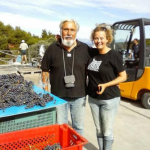
December the 4th, 2020 – The amount of comprehensive documentation and other paperwork needed to be handed in and inspected in order for those applying to be granted new Croatian COVID loans under the most recently introduced measures has been reduced.
As Novac/Marina Klepo writes, among the new measures introduced to help the economy presented by the Government over recent days is a new package of Croatian COVID loans in the amount of 1.3 billion kuna, prepared in cooperation with the Hamag-Bicro agency. When asked where the funds will come from, the Minister of Finance Zdravko Maric said that the cash for the Croatian COVID loans has been secured in a way so that some of the funds from EU funds will be redirected to Hamag-Bicro.
Criteria and conditions
The Agency will continue on with the implementation of the amended programme “COVID-19 working capital loans” by focusing on micro, small and medium enterprises that are seeing declines in revenue when compared to last year, and which have been closed by the decision of the National Civil Protection Headquarters. Such companies will need to have achieved a drop in revenue of 60 percent or more when compared to 2019. Apparently, obtaining these Croatian COBID loans will be easier and faster than it has been so far, given that the main complaint from those applying has been about the complexity of the procedure and the general slowness in approving the loans.
”In order to process requests faster, Hamag-Bicro is working intensively to further reduce the scope of the required documentation. We’re also working on changing the programme so that as many enterprises as possible get the opportunity to get a Croatian COVID loan,” they say from the Agency, emphasising that in the coming days, they will inform enterprises and the public about all of the criteria and conditions which must be met.
Hamag-Bicro was otherwise the very first institution to offer Croatian COVID loans in these utterly extraordinary circumstances back during this spring, and the documentation required to obtain the loan included an annual report of the past two business years, a gross balance for the period from the last available financial report to the last day of the month before submitting the loan application, then a solvency certificate not older than 30 days, a tax administration certificate on the state of debt to the state and a credit report of HROK, not older than 60 days, was also required.
However, as these are very favourable loans indeed (up to 100,000 euros for a period of five years, including a grace period of 12 months, and with an interest rate of only 0.25 percent), the typically Croatian procedure didn’t discourage those making applications. The agency was overwhelmed with requests, so after a month – the available funds were spent.
However, the agency points out that a significant number of business owners didn’t submit complete documentation when submitting their requests, to which they responded by making sure all enterprises were given the opportunity to complete the documentation and thus complete the documentation. The further speed of processing such requests, they say, also depended on the speed of delivery of the required documentation. This reduced the possibility of disqualification due to incomplete documentation to a minimum.
Requests received
Given the large number of requests received, the agency states that they have made additional efforts to increase the initial allocation from 1.14 billion to 3 billion kuna, in order to provide funds for all those who are positively evaluated. Additionally, in order to resolve the received requests as quickly as possible, and in understanding the needs of enterprises, they added that they have utilised all of their available capacities, respecting the defined rules and procedures.
Finally, since the onset of the crisis in March at the national level, they have placed more funds on the market “than all commercial banks combined”. Due to the great interest of enterprises in Croatian COVID loans, they are making further efforts to open up more new tenders for access to working capital, and also to extend the moratorium.
”We’re working to provide all Hamag-Bicro loan users with the possibility of a moratorium until July the 1st, 2021,” they point out.
For the latest travel info, bookmark our main travel info article, which is updated daily.
Read the Croatian Travel Update in your language – now available in 24 languages
Join the Total Croatia Travel INFO Viber community.










